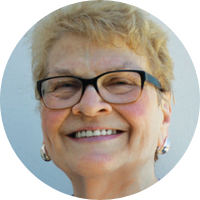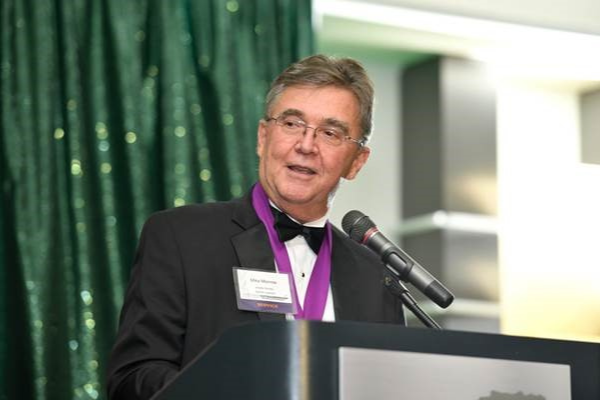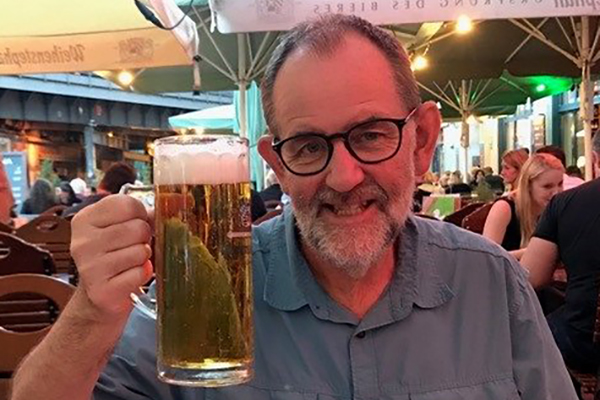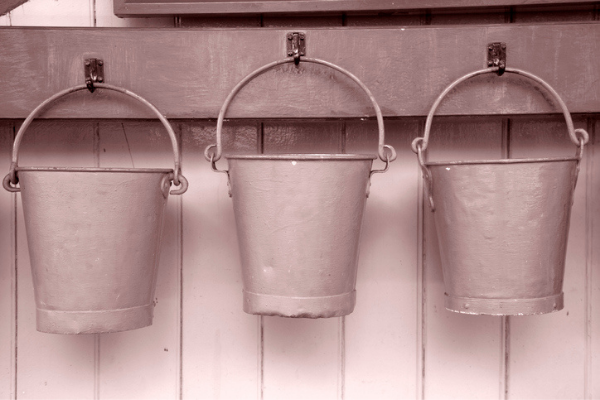
Did you choose retirement? Or was it chosen for you?
Although my husband Mark, who was a research chemist, had just taken his company’s early retirement package, I planned to continue working at Bell Labs Lucent Technologies. Then in 2001 Lucent offered an attractive retirement package and gave me seven days to make my decision. After reviewing the particulars, I decided to leave those hallowed halls.
How was the transition from the working world to retirement?
I chose not to seek a new job. However, I was not ready to sit back and “have a life of leisure”. In 2000, I had attended a talk at the National Academy of Sciences and was curious why there were so few chemistry female faculty members at the RI institutions. I decided to investigate the gender differences in the doctorate attainment rates and hiring of faculty members at the top-ten rated RI chemistry departments and then had my findings published in C&EN.
Subsequently, I decided to approach Seton Hall University to see if there were faculty members who would be interested in joining my effort to determine what was happening to women in chemistry. Fortunately, there was interest, and two professors from the psychology and one from chemistry joined me. We wrote grant proposals, and both the Camille and Henry Dreyfus Foundation and the National Science Foundation awarded us grants. Over the next few years, I did an extensive literature research on the women in the physical sciences, visited over 35 RI institutions where I interviewed over 1200 graduate students, post-docs and faculty members, wrote articles and book chapters in addition to giving numerous talks on our findings. I didn’t have a “job”, but I was busy doing research in a new area!
What do you wish you knew about retirement before you retired?
It would have been helpful to me if I had been encouraged to identify my internal drivers. I have learned in retirement, that for me to be happy at the end of a day, I need to have a feeling of accomplishment. It is critical for me to have helped someone, learned something new, or completed a task.
How do you stay connected to the chemistry enterprise as a retiree?
I have stayed active in the ACS. While we lived In North Jersey, I continued to co-chair the Section’s successful National Chemistry Efforts, teach a monthly 3-hour workshop for the unemployed, and assist with the Section’s Project SEED efforts.
In San Diego, I am the Section’s Project SEED coordinator and I also chair the Section’s General Interest monthly seminars. On the national level, I am secretary of the Senior Chemists Committee and am leading an effort to reach out to Underrepresented Minority (URM) third, fourth and fifth graders to teach them some chemistry and show them how much fun it is to do chemistry.
What do you like most about where you are living in retirement?
The winters in San Diego are far easier to take than those in North Jersey. In the fall of 2007, Mark, who had polio as child, fell and broke a vertebra in his neck. He was left wheelchair bound, and wheelchairs do very poorly on ice!
Since both of our children were living in California, we decided to join them. Our children wanted to be there immediately when Mark was experiencing medical issues. Unfortunately, within a year of moving to San Diego, Mark’s body finally gave out on him.
At the strong urging of our children, after Mark’s passing, I started attending the Executive Meetings of the San Diego Section. Our children had often teased me through the years, that I had three children, two that were biological and the other the ACS. Being active in the SD Section has afforded me the opportunity to meet a new group of friends. Through the years, staying active in the ACS has also given me a sense of purpose, a way to make things better for the next generations, learn some new chemistry and have the opportunity to know and work with many wonderful people.
What advice do you have for people who are getting ready to retire?
I urge you to identify those specific activities and accomplishments that you have found in the past to be particularly, personally rewarding, then determine the basis of that feeling and finally explore new ways you can continue doing similar things.

Valerie Kuck was at Bell Laboratories, Lucent Technologies for thirty-four years where she worked mostly on coatings. During that time, she was very active in the Society and was appointed or elected to chair five National Committees. She served three, three-year terms on the ACS Board of Directors, where she chaired the Committee on Grants and Awards. Based on her efforts, she has received three national ACS Awards and was named a Fellow in 2016.
This article has been edited for length and clarity. The opinions expressed in this article are the author's own and do not necessarily reflect the view of their employer or the American Chemical Society.











